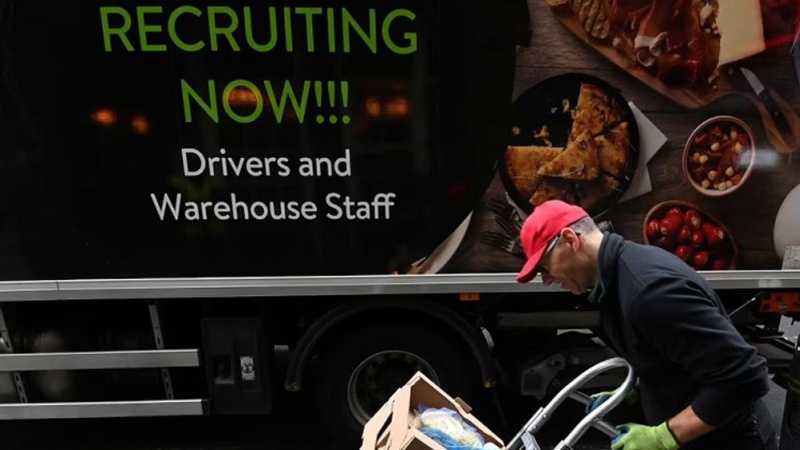UK unemployment rate increases as pay growth rises faster than expected
The UK unemployment rate has edged up unexpectedly, the official figures showed, highlighting a faster-than-expected spike in wage rises in the face of skyrocketing inflation across the country.
According to the figures presented by the Office for National Statistics (ONS) on Tuesday, UK job vacancies have fallen for the ninth straight month in a sign that the uncertain economic outlook is heavily impacting the British job market.
The data revealed that the unemployment rate also rose to 3.8 percent in the three months to February, the highest since the second quarter of 2022, while vacancies fell by another 47,000 in the first three months of 2023.
The increase in the unemployment rate appeared as a surprise for the government as most economists had expected the rate to remain unchanged.
The ONS said firms “continue to cite economic pressures as a factor in holding back on recruitment”, as they can’t afford employees’ wages.
Meanwhile, total pay, including bonuses, grew at an annual rate of 5.9 percent in the three months to February.
According to the ONS, regular pay excluding bonuses also continued to rise by 6.6 percent, but down by 3.4 percent with Consumer Prices Index (CPI) inflation taken into account.
The Bank of England’s Monetary Policy Committee (MPC) is watching wage growth carefully for signs that inflation is remaining stubborn and may consider raising interest rates once again in May in light of the recent figures.
Martin Beck, the Chief Economic Adviser at the EY Item Club, said: “Given the MPC’s wariness around inflation persistence, February’s strong rise in private sector regular pay could easily shift the majority in a more hawkish direction.”
Ellie Henderson, at Investec Economics, added: “We think that on balance… the MPC will raise the Bank rate by 25 basis points to 4.5 percent, but that will be the last hike in this tightening cycle.
“Today’s data release arguably supports that call: the labor market is still tight, suggesting a further tightening of the screws,” she added.
The economic pressure and the cost-of-living crisis have prompted many workers across different industries to hold industrial actions now and then, causing disruption in services in different sectors such as Royal Mail, rail, or National Health System (NHS).
ME



